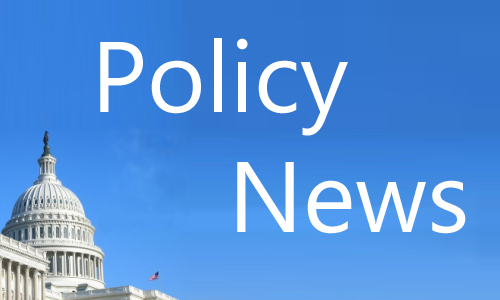ESA Policy News March 18: House reviews NSF budget request, FWS bans four constrictor snakes, ESA comments on EPA biomass memo
Here are some highlights from the latest ESA Policy News by Policy Analyst Terence Houston. Read the full Policy News here. 
APPROPRIATIONS: CJS SUBCOMMITTEE REVIEWS NSF FY 2016 BUDGET REQUEST
On March 17, the Commerce Justice and Science Appropriations Subcommittee held a hearing on the National Science Foundation’s (NSF) Fiscal Year (FY) 2016 budget. The request is for $7.7 billion for the agency, a five percent increase over FY 2015.
During the hearing, Chairman John Culberson (R-TX) expressed support for NSF while also asserting that it is important to ensure NSF grant awards continue to reinforce its reputation for funding high-quality research.
NSF Director France Córdova referenced the new guidance released several months ago to promote accountability and transparency for program officers, specifically citing the requirement that a nontechnical description explains each research project’s national significance. Córdova also defended funding for the social and behavioral sciences. She noted that NSF’s Social, Behavioral and Economics Sciences Directorate has funded 51 Nobel Prize recipients since 1998.
Chairman Culberson asked Córdova about NSF Inspector General (IG) reports that critique agency expense audits on major research equipment and facilities construction projects. Córdova stated that the agency will continue to strengthen its policies and procedures and address the IG recommendations. She affirmed that the agency properly follows the Office of Management and Budget guidelines for contingency funding and awards.
Click here to view the full hearing.
INVASIVE SPECIES: FWS BANS IMPORTATION OF FOUR CONSTRICTOR SNAKES
On March 6, the US Fish and Wildlife Service announced a ban on import and transport of four nonnative large constrictor snake species under the Lacey Act. A fifth snake species, the boa constrictor, was removed from consideration for the restrictions.
The restrictions define the reticulated python, DeSchauensee’s anaconda, the green anaconda and the Beni anaconda as “injurious” under the Lacey Act. The reticulated python and the green anaconda have been traded commercially as pets in the United States. The Beni and DeSchaunsee’s anaconda are not believed to be present in the US. The ban on all four snakes will go into effect on April 9, which is 30 days after the formal listing in the Federal Register.
Click here for additional information.
CLIMATE: ESA EXPRESSES CONCERN WITH BIOMASS MEMO ON WOOD BURNING
On March 11, the Ecological Society of America (ESA) sent a letter to US Environmental Protection Agency (EPA) Administrator Gina McCarthy expressing concern with an internal agency memo proposing to credit wood biomass use in carbon emission reduction efforts.
The EPA memo, issued in Nov. 2014, contends that using biomass as a source of power is likely to have little or no net contributions to carbon dioxide emissions if the biomass is produced with “sustainable forest or agricultural practices.”
In February, several ESA members were among 78 scientists who penned a similar letter to EPA. The Cary Institute spearheaded the scientists’ letter.
Click here to view the EPA memo. Click here to view the ESA letter. Click here to view the Cary Institute letter.
COMMUNICATIONS TRAINING: ESA SPONSORS CLIMATE SCIENCE WORKSHOP
On March 4, ESA sponsored a four-hour interactive workshop on Communicating Climate Science held in coordination with the American Association for the Advancement of Science (AAAS) in Washington, DC. Over 50 ecologists attended. The workshop covered much of the information included in the AAAS “What We Know” report.
Click here to view the AAAS report.